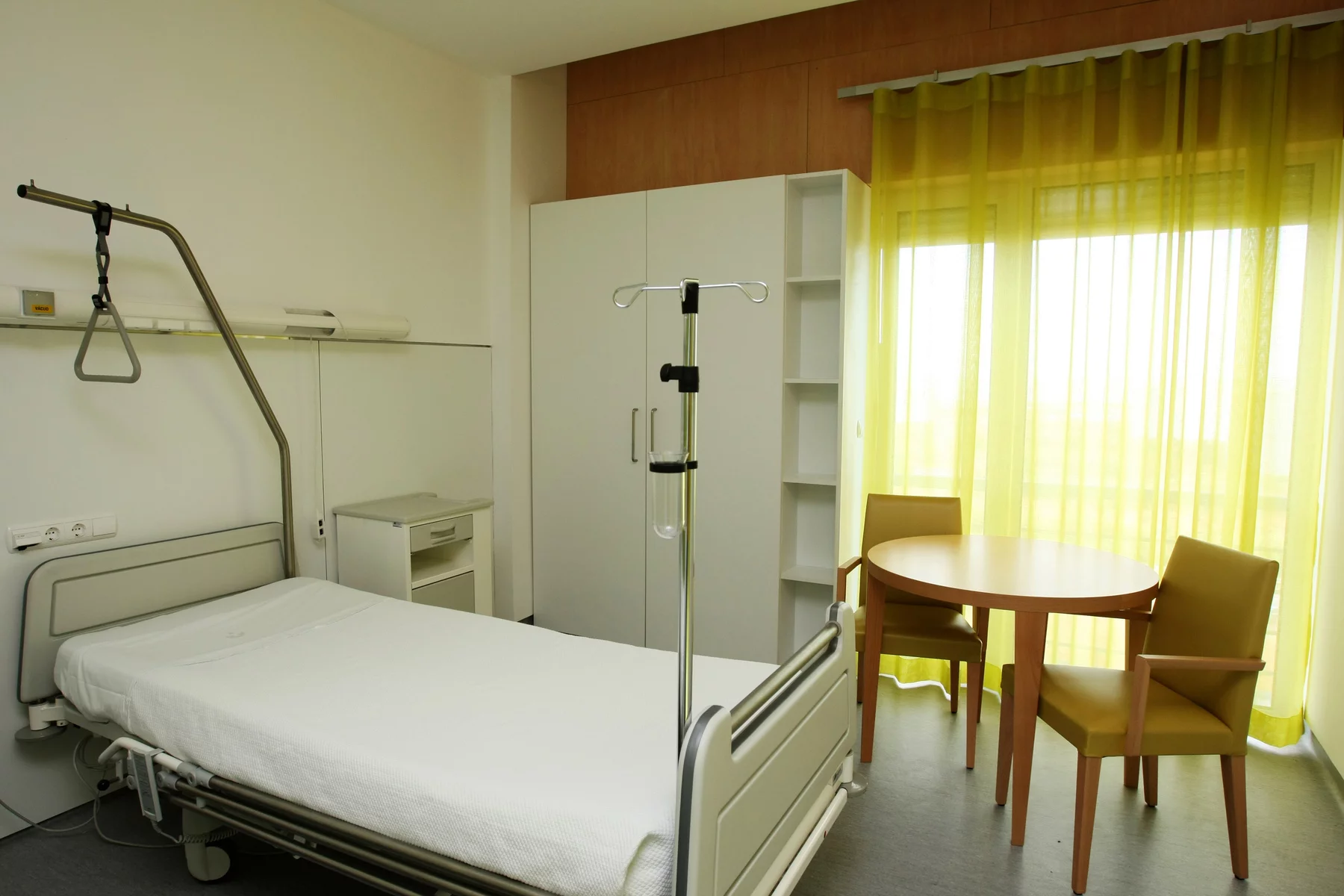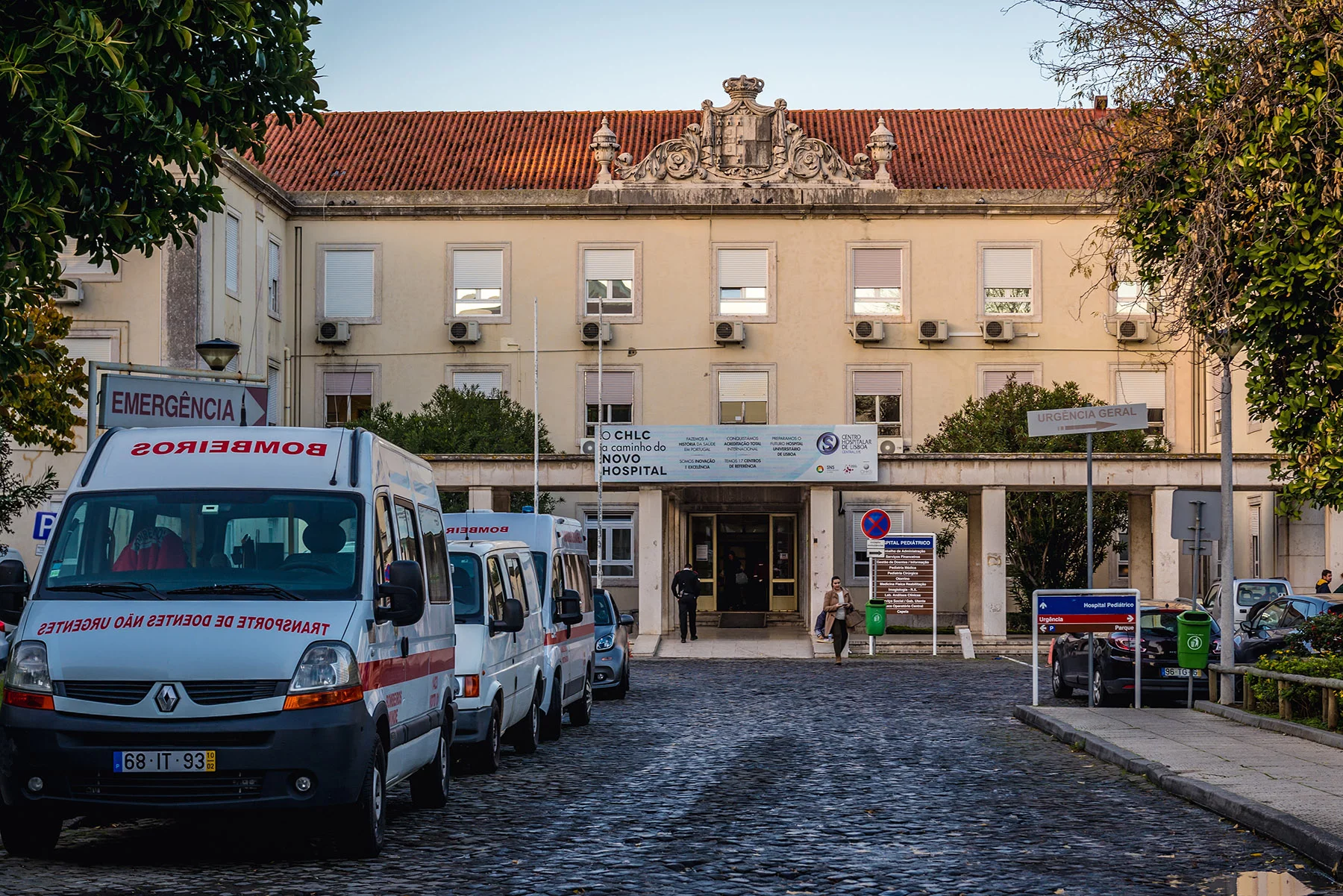The Portuguese healthcare system offers both public and private services. However, while expats living in the country can apply for state healthcare, some choose to complement it with private health insurance to cover the high costs of private hospital treatments. That said, this step is optional, as you can still access private hospitals without having private insurance.
To help you understand how Portuguese hospitals work, this article includes the following information:
- Hospitals in Portugal
- How to access hospital treatment in Portugal
- Emergency treatment in Portugal
- Hospital stays in Portugal: what to expect
- Hospital costs in Portugal
- Being discharged from Portuguese hospitals
- Visiting someone in the hospital in Portugal
- The best hospitals in Portugal
- List of hospitals in Portugal
- Useful resources
Cigna Global
Enjoy peace of mind while living in Portugal with Cigna Global’s long-term international health insurance plans (12+ months). Get tailored coverage, direct billing with many providers, complex case management, and global care on demand, with access to a network of 1.5+ million doctors, specialists, and therapists.
Hospitals in Portugal
Portugal has a mix of public hospitals (hospital público) and private hospitals (hospital privado or hospital particular). Public hospitals are managed by the Portuguese National Health Service (Serviço Nacional de Saúde, or SNS). Private hospitals, on the other hand, are run by large private healthcare organizations.

For the most part, medical institutions are general and offer a vast range of specialties. These can include cardiology, gynecology, neurology, orthopedics, and pediatrics. However, there are also specialized hospitals that cover specific fields like oncology (oncologia).
Overall, Portugal offers a good standard of medical care. Moreover, the country ranks 7th for English proficiency worldwide, meaning that many doctors in Portugal speak fluent English. Indeed, while some nurses or staff may only know a few words, there is usually someone around who can help translate.
According to the National Statistics Institute (Instituto Nacional de Estatística), there are 238 hospitals in Portugal. More than half of these are private hospitals (127), and the rest are either public or partially funded by the state. However, of the 36,100 hospital beds available, 23,500 were in public hospitals.
You can go to the hospital for emergency treatment or a specialized consultation in Portugal. Since state healthcare covers part of the costs, most people visit public hospitals in the country. In fact, in 2019, public hospitals catered to 76.5% of emergency treatments and 59.8% of the total number of appointments.
Like in many countries, public hospitals in Portugal are cheaper. However, there can be long waiting times for non-emergency treatment. So while private hospitals may be pricier, they do offer some advantages.
How to access hospital treatment in Portugal
Any resident in Portugal can access hospital treatment. In general, you only need to provide your citizen card (cartão de cidadão), which includes your healthcare number (número de utente). You will receive this number once you register for the public healthcare system. In a private hospital, you will need to present your citizen card or passport, and proof of private health insurance if you have it. But again, private insurance is optional.
Non-residents and those visiting on a short-term Portuguese visa without state healthcare can also take out private insurance to save on medical care. But again, this is optional, and they can also choose to pay out of pocket.
There are several private and international health insurance companies that provide medical care coverage suitable for expats, including:
If you are visiting Portugal from the European Union (EU), European Economic Area (EEA), or Switzerland, you can use your European Health Insurance Card (EHIC) to access hospitals in the country.

Unless it is an emergency, you will need a referral from your GP to access treatment at a public hospital in Portugal. You should book an appointment at your local health center first. The doctor will then direct you to a specialist at your nearest hospital. For private hospitals, however, you can book an appointment directly without a doctor’s referral. And while you don’t need to have private health insurance to do this, it can help cover the costs.
It is good to know that even if you are not a Portuguese resident, you can always access emergency care at a local hospital. Your travel insurance should cover this, however, depending on your policy, you might have to pay some extra fees.
Emergency treatment in Portugal
If you need emergency treatment, you should head to the hospital. Once you arrive, make sure to head towards the emergency department (urgências). Usually, you will need to take a ticket and wait in line until someone calls you. Don’t forget to bring your ID to show at the reception.
After signing in, a nurse will assess your condition and give you a colored bracelet: red, orange, yellow, green, or blue. These colors indicate the severity and urgency of the treatment. They can also determine how long it will take for a doctor to see you. Of course, if it is a severe medical emergency, you will receive immediate care, even if you don’t have your documents at hand.
For urgent medical care in Portugal, you should call the emergency number, 112. Most operators will speak some English, but try to speak slowly and clearly. Alternatively, you can go directly to the nearest hospital. For general medical advice and minor issues, you can also contact the Portuguese Healthline on 808 24 24 24.
Hospital stays in Portugal: what to expect
There are a few things you should know if you are facing a hospital stay in Portugal. Most general wards can accommodate between two and six patients. Usually, you will share a room, but in some cases, you may get a private room; especially if you are in a fragile condition.

While the majority of hospitalizations occur in public hospitals, private hospitals can offer many benefits such as modern facilities and the option to choose your doctor. It can be expensive to stay in one, but you can take out private health insurance to help cover the costs.
Hospital costs in Portugal
As a resident of Portugal, you can receive state healthcare. While most hospital costs are funded by the SNS, patients will still need to make a small contribution to treatments.
In a public hospital, these costs may include the following:
- Specialized appointment: €7
- Emergency treatment: €15 to €20
- Overnight stays: €25 per night
- Exams: up to €40
You can check this list of hospital costs (in Portuguese) for other service fees. It is good to know that there are exemptions for certain groups, including children, pensioners, and the unemployed.
It is important to be aware that if you are treated in a hospital and are not covered by either state or private health insurance, you will need to pay the treatment fees. Of course, this cost is much higher in private hospitals. For example, a specialized appointment can cost around €80, while overnight stays can go up to €500 per day.
Private health insurance in Portugal
As mentioned, private health insurance is also available in Portugal, and some locals like to complement their state healthcare with an insurance plan to cover the high costs of a private hospital.
Some of the biggest private health insurance companies include:
Usually, the hospital will ask your insurance provider to pre-approve any treatments and surgeries. In general, most health insurance plans offer a fixed amount for private medical care, and if you exceed that amount, you might have to co-pay your expenses. In this case, the payment process will depend on the agreement you have with the insurance provider. They may cover the cost directly, or you may need to pay upfront and claim reimbursement later.
Being discharged from Portuguese hospitals
If you are staying at a hospital in Portugal, you will need to wait for a doctor to give you the discharge (alta hospitalar). Before you leave the hospital, your doctor will hand you a note regarding your treatments. If you need further care, they will go through the next steps with you. Naturally, it can be hard to process all this information at once, especially if you are still brushing up on your Portuguese, so don’t be afraid to ask questions.

Upon discharge, you may receive the following:
- Discharge notice (nota da alta)
- Treatment notes
- Exam results
- Prescriptions
- Bookings for further appointments
- A doctor’s note for medical leave (upon request)
It is possible to discharge yourself from a Portuguese hospital at any time. However, it is always best to follow your doctor’s recommendations. That said, if you choose to go against medical advice, you must sign a form that releases the hospital from any liability.
Visiting someone in the hospital in Portugal
Family members and friends are welcome to visit patients in the hospital, and most Portuguese hospitals have set visiting hours (horário de visitas). These are usually between 11:00 and 20:00, but this may vary depending on the hospital or department.
In general, larger wards allow more visitors, while smaller rooms can only have one to two people. During your visit, make sure to keep your phone on silent to avoid disturbing other patients.
Due to the COVID-19 pandemic, many hospitals in Portugal have changed their visiting policies. As such, it is always wise to check the current rules directly with the hospital.
The best hospitals in Portugal
The best hospitals in Portugal are generally located in the capital and large regions like Porto and the Algarve. According to the Ranking Web of World Hospitals, these are the top five medical institutions in the country:
- Centro Hospitalar Universitário de Lisboa Central: a public hospital center in Lisbon with several units, including specialized maternity and children’s hospitals
- Centro Hospitalar Universitário do Porto: a public university hospital in the city of Porto. It occupies a stunning neoclassical building that also houses a local history museum.
- Instituto Português de Oncologia de Lisboa: a state medical institute dedicated to oncology and cancer research located in Lisbon
- Clínica Central do Bonfim: a private polyclinic in Porto that provides both general treatments and specialized care. It also offers home visits.
- Centro Hospitalar Universitário do Algarve: a public hospital center with several units across the Algarve region, including a specific clinic for physical medicine and rehabilitation
List of hospitals in Portugal
You can search for public hospitals on the SNS website (in Portuguese). Make sure to select the option for “Cuidados de Saúde Hospitalares”, then choose a district to find your nearest provider. You can also read the SNS benchmarking report for information on the quality of public hospitals, including ratings and waiting times.

To find private hospitals, you can check the website of the Portuguese Association of Private Hospitalization (Associação Portuguesa de Hospitalização Privada, or APHP).
Below is a shortlist of hospitals in the main regions of Portugal.
Lisbon hospitals
- Curry Cabral Hospital
- Dona Estefânia Hospital
- Egas Moniz Hospital
- Hospital CUF Descobertas
- Hospital da Luz
- Instituto Português de Oncologia de Lisboa
- Santa Maria Hospital
- São Francisco Xavier Hospital
Porto hospitals
- Clínica Central do Bonfim
- Hospital CUF Porto
- Hospital de Santa Maria
- Hospital Geral de Santo António
- Hospital Lusíadas
- Maternidade Júlio Dinis
Central Region hospitals
Alentejo hospitals
- Hospital de São Paulo
- Hospital do Espírito Santo
- Hospital Particular do Alentejo
- Santa Luzia Hospital
Algarve hospitals
- Centro de Medicina Física de Reabilitação do Sul
- Faro Hospital
- Hospital Lusíadas Albufeira
- Hospital Particular do Algarve
- Lagos Hospital
- Portimão Hospital
Portuguese islands hospitals
- Divino Espírito Santo Hospital
- Hospital de Santo Espírito da Ilha Terceira
- Hospital dos Marmeleiros
- Hospital Dr. Nélio Mendonça
- Hospital Internacional dos Açores
- Madeira Private Hospital
Useful resources
- SNS – the website for the Portuguese National Health Service (SNS)
- ePortugal – provides information about medical care for European citizens in Portugal
- Ordem dos Médicos – the professional order for licensed doctors in Portugal
- APHP – the association of private hospitals in Portugal
- Portugal Health Passport – a healthcare program for tourists in Portugal resulting from a partnership between the Portuguese tourism board and the country’s top private health providers






